Little Boots: "I was put in with so many big producers from day one that I lost all faith in my ability"
Little Boots on returning to her DIY roots and self-producing her latest album, Tomorrow's Yesterdays
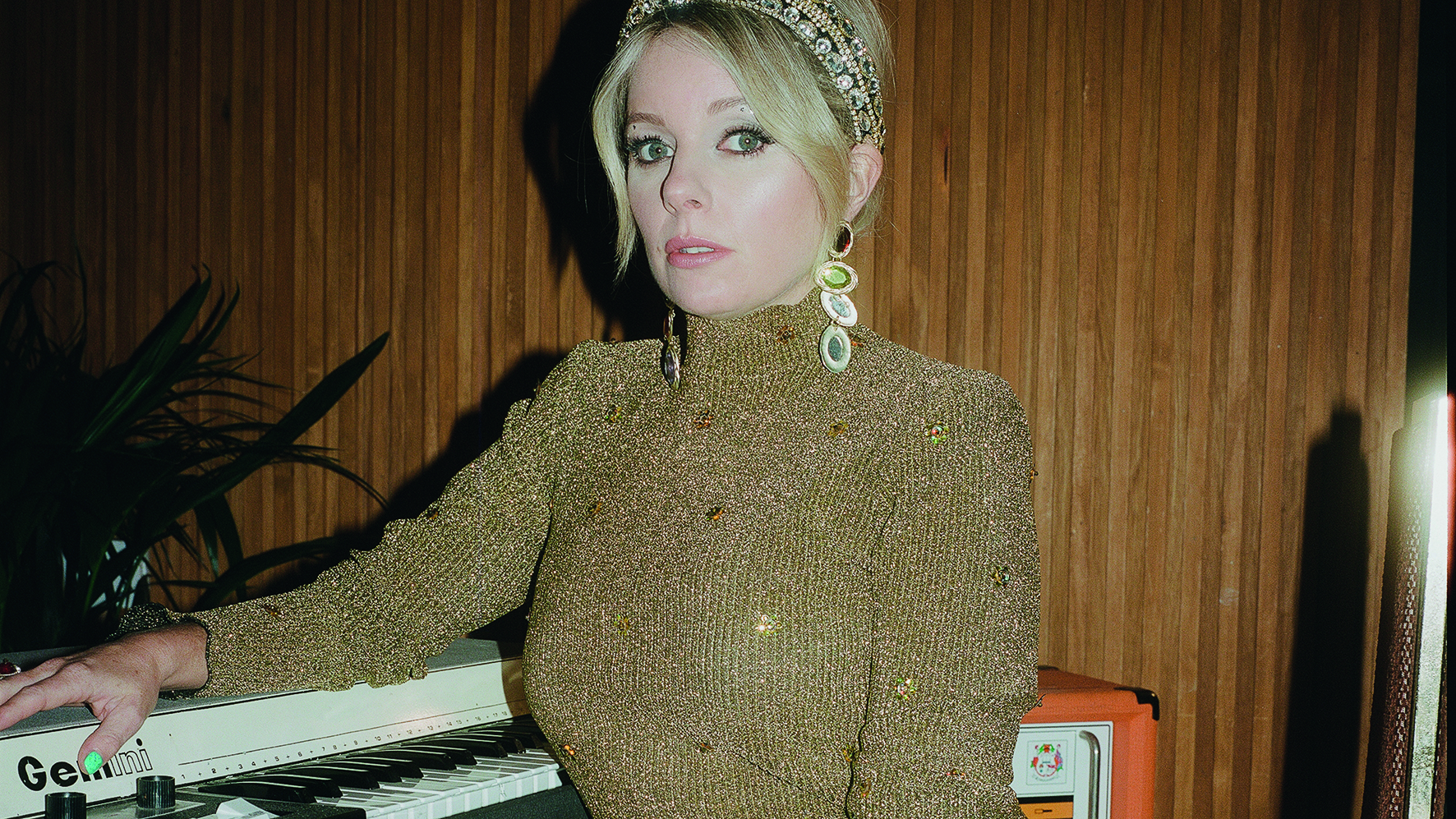
Want all the hottest music and gear news, reviews, deals, features and more, direct to your inbox? Sign up here.
You are now subscribed
Your newsletter sign-up was successful
Thrust into the limelight in her early 20s, Little Boots’ Victoria Hesketh’s 2009 debut album, Hands was a top 10 hit, introducing her to a raft of big name co-writers and producers to help shape her love of disco and ’80s synthpop. Later albums Nocturnes and Working Girl were similarly collaborative.
Whilst grateful for the input of others, such loss of control meant Hesketh was slowly losing confidence in her ability to write and record independently and needed to return to a more DIY approach. As the pandemic struck and isolation became the norm, it wasn’t long before Hesketh was forced to make good on her promise to take full ownership over her music.
The result is her fourth album, Tomorrow’s Yesterday. Both nostalgic and future-facing, and almost entirely written and produced by Hesketh, it’s arguably her most cohesive and consistent collection of songs to date.
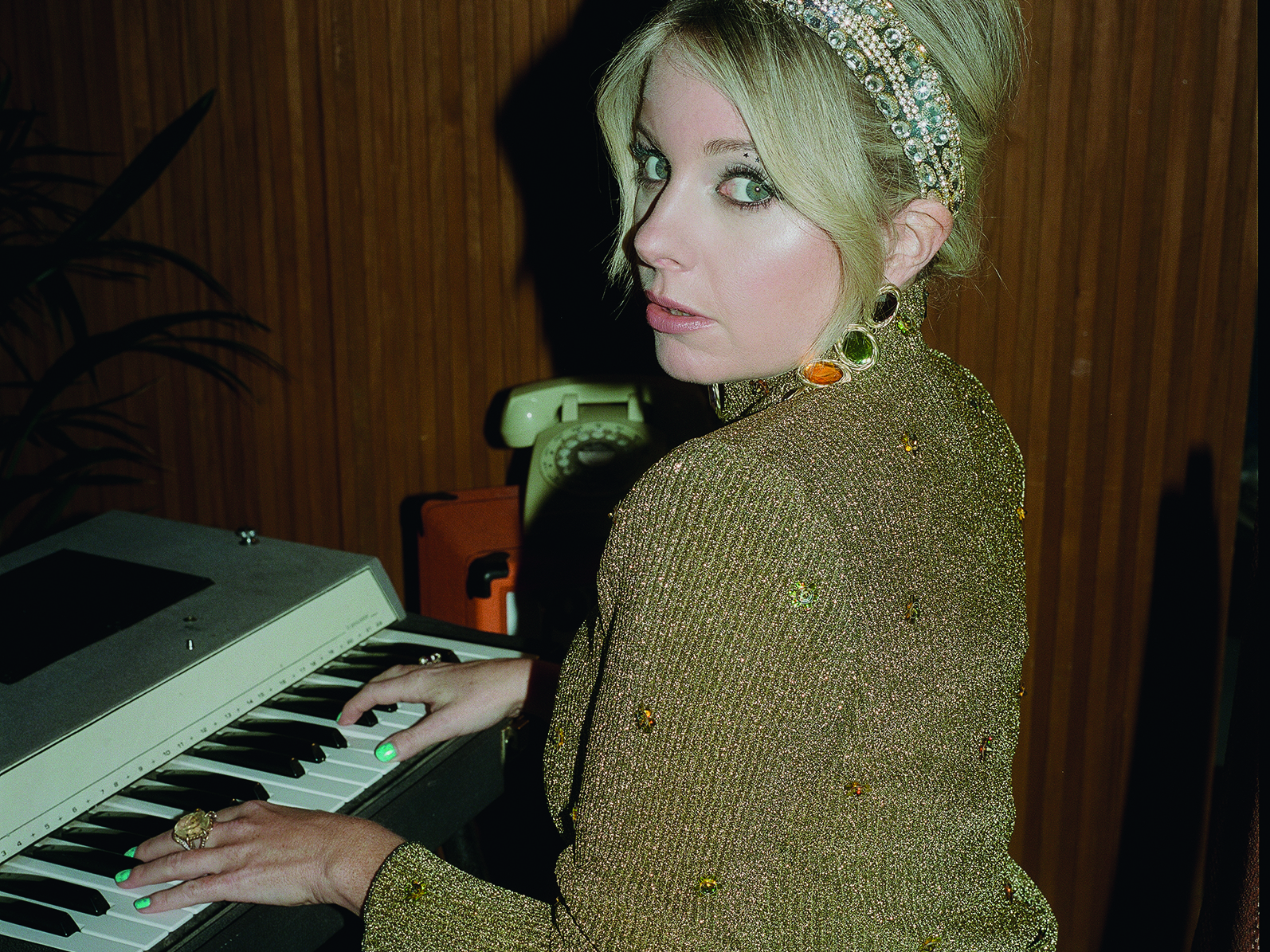
How have you found the experience of using Patreon to fund the recording of your new album Tomorrow’s Yesterday?
“I was a little sceptical at the start, but obviously when Covid hit, all of my gigs were cancelled overnight and I was wondering what on earth I was going to do. Thankfully, the realisation that musicians were going to be screwed for quite some time seemed to resonate with a lot of people. I’d done a Kickstarter the year before and people had been saying I should give Patreon a go, so I gave it a whirl and got an amazing response. Luckily, the one thing that’s kept me going through the last decade or so is that I’ve got a really loyal core fan base to support me.
Self-releasing an album is such a huge pressure that it’s really liberating to be making music for the fans, funded by the fans
“They basically funded the whole record, which was great because when you release music on a label there can be an ulterior motive. Patreon’s a lot more personal [than Kickstarter]. There are different levels so you might pay a fiver for access to the news feed or live stream or £30 a month and once a year you’ll get to choose a song that I’ll record and dedicate to you. Even though that’s a lot of money, I feel that’s a really unique thing to offer fans and I’ve covered everything from Depeche Mode to S Club 7 over the past year [laughs].”
Does the level of expectation increase, knowing that your record is being funded by your fans, and is that a good thing or added stress?
Want all the hottest music and gear news, reviews, deals, features and more, direct to your inbox? Sign up here.
“I’ve put my own money in as well, but self-releasing an album is such a huge pressure that it’s really liberating to be making music for the fans funded by the fans. Throughout Covid I also did live streams every month and that too created a special community and something that we all looked forward to. Now I’m excited to see how I can fund future projects on Patreon because it’s been a game changer for me.”
It must be encouraging to know there are platforms out there to help artists earn money in the age of digital?
“I’m glad attention is being paid to things like Spotify earnings. Only the top 10% of artists make any money on streaming platforms, so it’s not enough to make a living from, especially now that touring has become so unstable.”
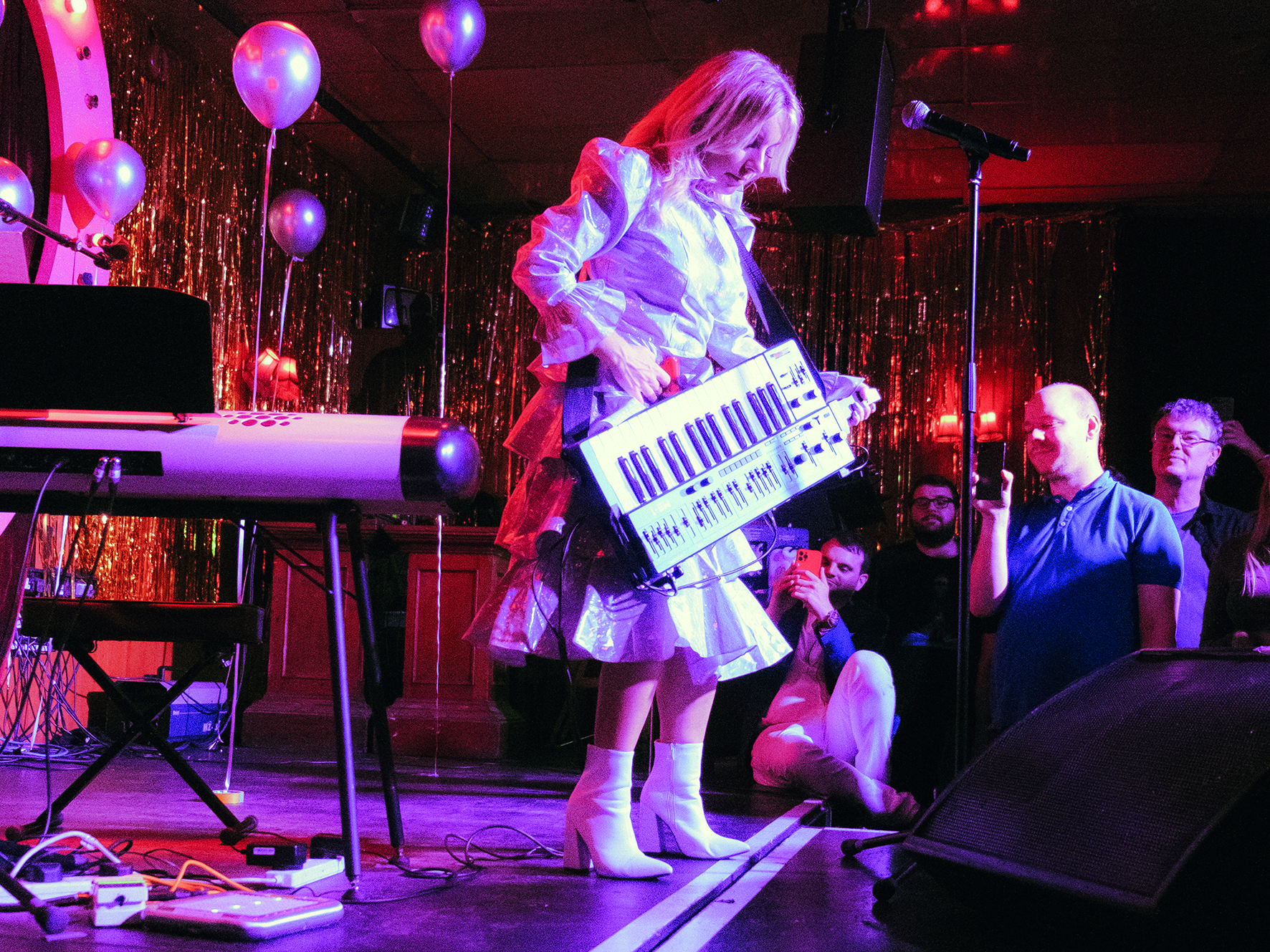
Would it be fair to say that Tomorrow’s Yesterday is different to your previous albums in that it has a more classic pop sound?
The major label pop system can give you a confidence crisis - I was put in with so many big producers from day one that I lost faith in my ability
“There are parallels between Tomorrow’s Yesterday and the first album, Hands. It’s really about me making good pop songs and writing without an agenda. I just got back into that headspace of reconnecting with the feelings I had when I first started writing everything on the piano before building up the production side.
“As a career moves along with all its ups and downs, it’s easy to forget that feeling, so it was nice to return to writing without being influenced by stuff like playlists and algorithms rather than what I thought was good.”
There is a subtle disco influence too…
“I wanted it to have more of a disco feel as I love disco and have always been more associated with the ’80s end of electro. I’ve wanted to create an album that has a warm disco feel for a long time and because Tomorrow’s Yesterday is the first record I’ve produced myself that also puts a different spin on it.”
You typically co-write your tracks but this time decided not to. Have you got to a point in your career where you want full ownership over the music-making process?
“It was mainly due to Covid and the fact we couldn’t work with other people. A lot of artists do Zoom sessions and I’ve had good results working remotely in the past, but I prefer to be in the same room and connect with people when I’m writing my own stuff.
“Over the last few years I’ve done a lot of EPs and collaborations and not made a full album for a long time, but I knew at some point I’d need to take more of a central role. I had a bit of imposter syndrome and wondered if I could pull it off, but when Covid happened there was no excuse, I had to do what I said I would and that was a good push. In the end it was a silver lining during an awful time.”
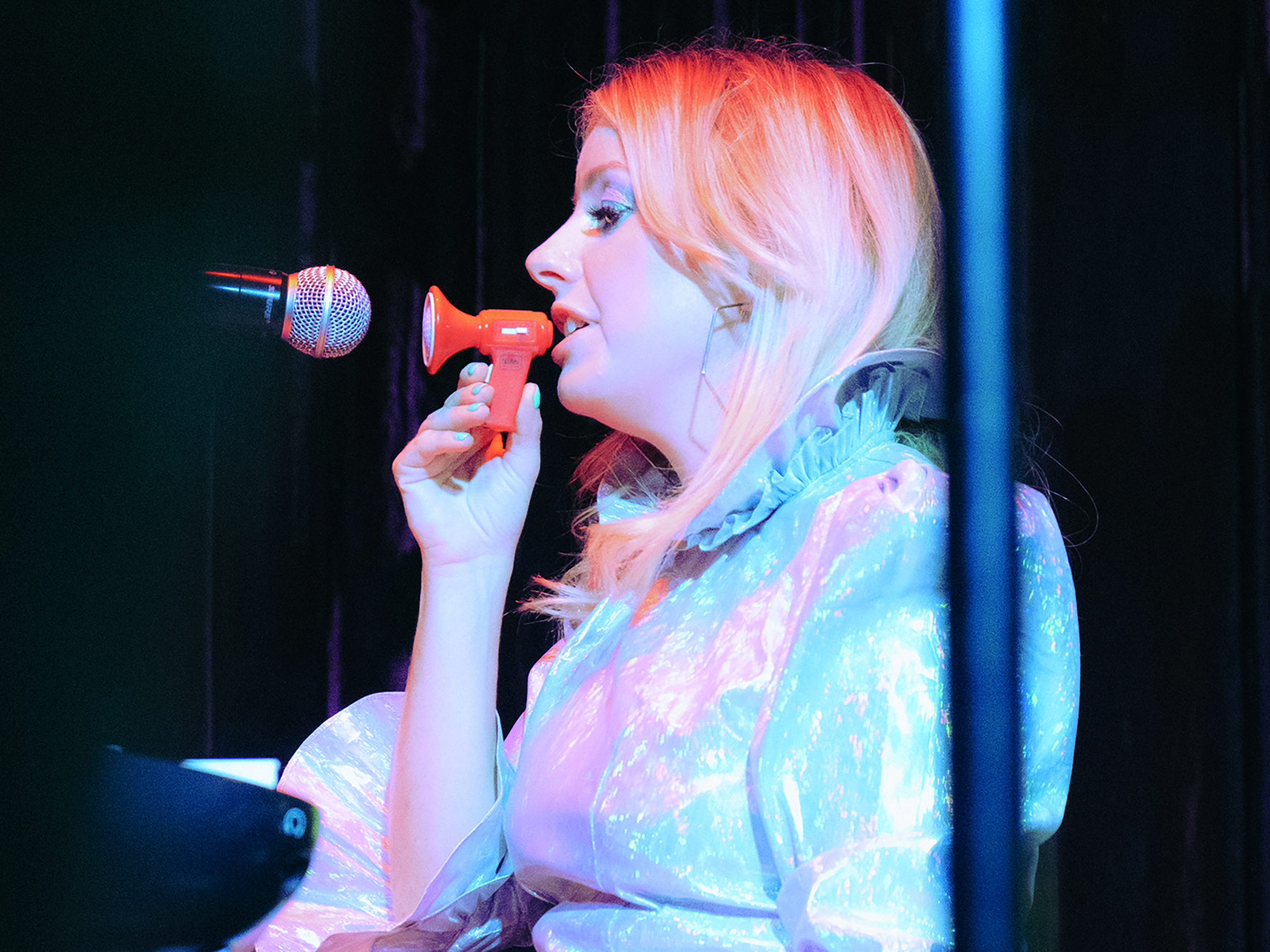
You co-produced the album too and it sounds more cohesive because of that. Does achieving a cohesive sound become problematic with different producers working on every track?
“Absolutely and I think that’s one of the biggest challenges with modern pop music because a lot of the pop records I listen to seem to struggle with cohesion. Most of my fans say that my second album, Nocturne, was their favourite and that was an album that I wrote with lots of different people before rerecording the whole record with Tim Goldsworthy to give it that consistency.
Those things that you love in great records are quite often accidents - if it sounds good it doesn’t really matter how you got there
“Although it was quite a long time ago now, I remember really worrying about that with my last album Working Girl. You do a ton of sessions with people and eventually a sound and direction takes shape, but it’s a monster A&R job trying to svengali all these different songs that are often written in different styles.
“When that’s the case, you need a strong concept or narrative to your lyrics, and I think that’s what held Working Girl together. With Tomorrow’s Yesterday, I hardly worked with other producers and on the few songs that I did I also worked on them remotely.”
Did you mix the album yourself or are you still leaving that to someone else?
“Oh god no, I can’t mix – I just don’t have the patience to sit down and EQ a snare drum. I get excited by sounds and songs, but can’t get excited by reverbs. I’m in awe of great mixers and what they can do for a record, but I’ve been in studios for years and worked with some incredibly talented people like Greg Kurstin and Richard X, so I’ve absorbed a lot by osmosis.
“When I started out, I wasn’t really producing but I at least recorded my own demos and I think the whole major label pop system can give you a confidence crisis because I was put in with so many big producers from day one that I lost all faith in my ability to do that side of things.
“When you get such cool results from working with amazing people like James Ford and Hercules and Love Affair, you feel they can take your music to a whole new world, which is very exciting, but at the same time you lose confidence in yourself.”
How did you break through those barriers?
“What I didn’t realise is that I’d been learning all the time, so when it did come to sitting down and making this record it wasn’t as hard as I thought. I just needed to trust my ears and if something on the production side got difficult I’d look up one of those YouTube tutorials on Ableton.
I get excited by sounds and songs, but can’t get excited by reverbs
“What you do eventually realise is that those things that you love in great records are quite often accidents or weren’t carefully thought out, and that gives you confidence to think that as long as it sounds good it doesn’t really matter how you got there.
“Before I delivered the demos to my manager we discussed bringing in a ‘proper’ producer to reproduce my sketches, but he said, what are you talking about, these are some of the best-produced demos I’ve heard. I’m still amazed when I listen to it, but that’s great going forward because self-producing does make things a lot easier – and cheaper [laughs]!”
Piano is woven into a lot of the tracks. Was it a case of leaving certain aspects of the demo process intact so the instrument could help create that classic pop sound?
“It was a really conscious decision. I’ve played piano since I was five years old and it’s always been a big part of my writing process. I’d been listening to a lot of classic ’70s writers like Elton John and Carole King, so I find mixing piano with synths an interesting balance.
I always had a lot of analogue stuff and now I have all the soft synths in the world, it feels like cheating
“Some of the songs are based on Rhodes and clavs, but there is generally a main, chunky keyboard part in everything. I think ABBA was a big influence too, because there’s piano in nearly every song of theirs and a load of synths, which gives it a really rich sound.”
The title track sounds like a bit of an ode to The Beatles and Love the Beginning has a slight Bee Gees feel. Was infusing those references conscious or subliminal?
“Tomorrow’s Yesterday is quite an odd song for me. I wrote it with my friend Liam and we wanted to do a big over-the-top end of a movie song, which is quite out of character for me. A lot of the album is looking forwards and back at the same time, which is quite reflective of where I am in my personal life.
"Those references you mention are probably quite subliminal, but I find that the Bee Gees’ backing vocals are incredible, so that’s definitely something I thought about in terms of layering and using call and response techniques. It’s an ABBA thing too – you’ve got this hook but now you can put a whole other hook in the backing vocals; they don’t necessarily have to follow what the main vocal is doing.”
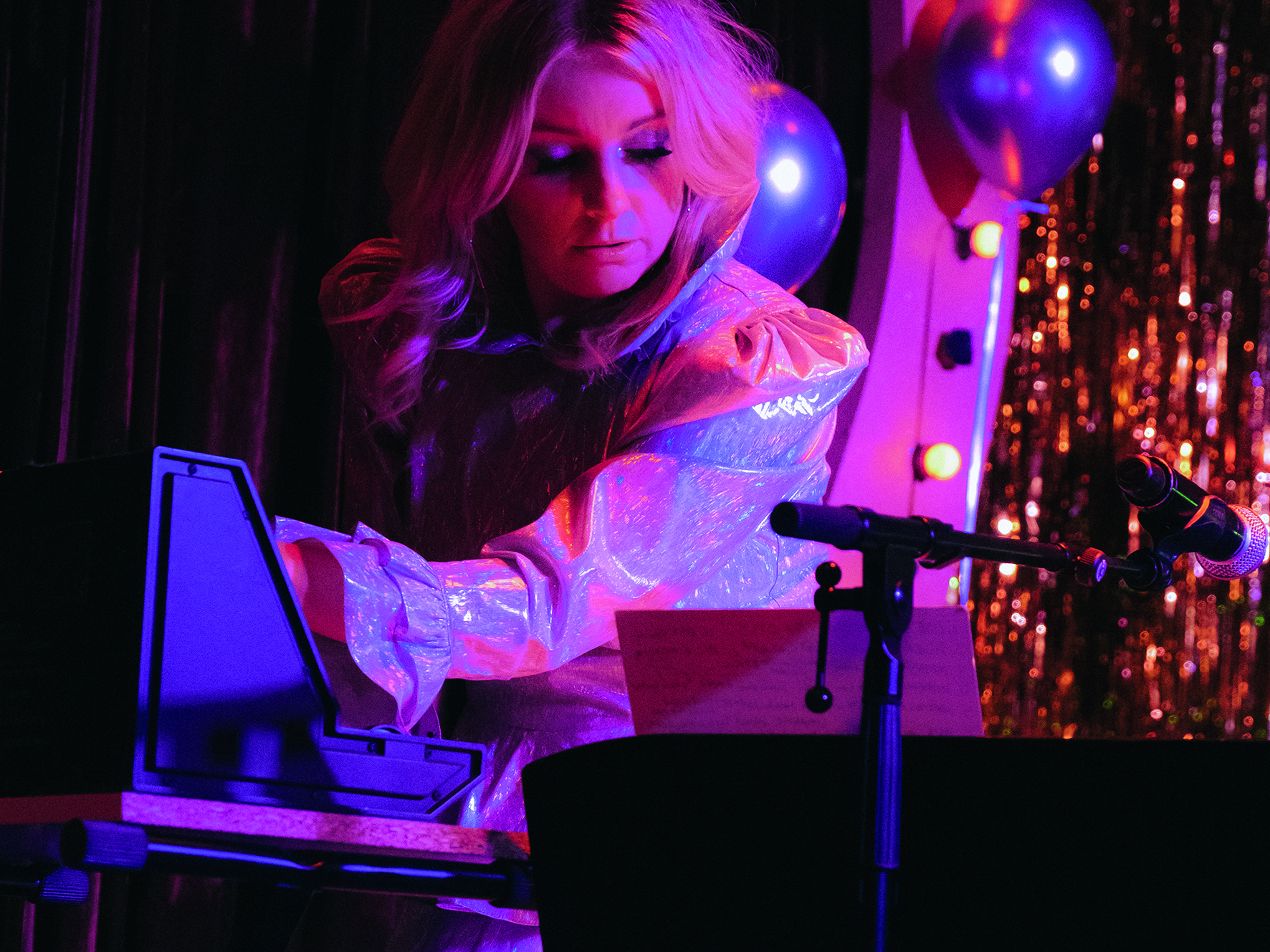
Despite being a trained pianist, do you find yourself getting locked into using familiar chords?
“I push myself to find new places to go with the piano. There’s definitely a Chic influence on some big chords, so continually listening to classic artists who put the piano at the centre of songs is helpful, but I actually retrained classically a few years ago in Los Angeles.
Doing the production has been so empowering; knowing that I can write and produce makes me feel unstoppable
“I was walking down the street and came across this cute pink building with pianos and had to go in. Inside I met a lady called Riko Weimer who told me to play something for her, and then she said, OK, you can be my student, come in next week. I didn’t dare say no.
“She’s a concert pianist and I’ve been studying with her for two or three years now and getting that skill back has been so liberating. I’m not doing crazy, technical stuff when I’m writing songs, but having that new information is really inspiring. You suddenly see places you couldn’t go before.”
The track Crying On the Inside is a big pop statement. Is there a story behind that?
“That was actually an old song I wrote five years ago for Carly Rae Jepson, but she didn’t take it so it ended up sitting in the pop graveyard of my hard drive. I‘ve always really loved the song and it bugged me that nothing had happened with it, but when I played it to my Patreon subscribers they thought it was amazing and said I should put it on the album. I started to re-produce it and it was quite hard trying to put a fresh spin on the song, but I’m so happy it found a new life.”
We’re guessing that’s a CR-78 drum machine ticking along on the track Deborah?
“Well done. I wrote the track with a friend, Ned Medlar, and he’s got some great gear in his studio including all these ’70s drum machines. We were listening to The Alessi Brothers’ Seabird, which is a gorgeous tune that starts with a great drum loop.
I know people who have nearly got divorced due to their modular synth obsessions
“I’ve always been into mixing drum machines with real drums, so we just got a drum loop up on the CR-78 and sampled it. There’s quite a lot of drum machines on the record. I used to write little loops on Casio keyboards and that still feels like a very natural way to go for me.”
Your home studio is in storage now, but did most of the recording take place there?
“It all started in Seattle where I spent time at a writing retreat in the snow, in a hut, with a fire and a bag of synths. Then I ended up writing the last bit on a beach in Belize making a vocal booth out of a mic and some pillows in the closet.
“Some of it was recorded in Blackpool and London too, so my studio has been very mobile recently, but the reality is usually a giant web of wires everywhere and loads of things not working.”
What pieces of gear were you carrying round with you?
“Little drum machines and keyboards. As I’ve worked with them for a long time, I have a lot of Korg gear like the Volca Beats, and the ROLI Seaboard is good for travelling. Years ago I had a blue Roland SH-101 keytar that got stolen and I was so sad about that, as they’re really hard to get now, so when Behringer brought out the MS-1-BU clone I got one of those and it’s actually on the cover of the album.
“I always had a lot of analogue stuff and now I have all the soft synths in the world, it feels like cheating, but I’m looking forward to getting back to having a full-time base with lots of hardware synths.”
You’ve never come across as someone attracted to software…
“I like toys with buttons rather than things that are complicated with loads of sub-menus. One of the things that I loved using on the record was the Fisher SC-300 Boombox, which was an ’80s gimmick with a keyboard on top and a built-in drum machine that you could take to a party and play piano and beats with.
“I also used the Tenori-on on one track, which I’m quite well-known for, and the Dubreq Stylophone S2. I like things that are playful, tactile and not particularly well-functioning because I think they bring out creativity.”
How do you look back on the experience of taking full control over this record?
“The new album has definitely given me more confidence. For quite a long time I was trying to write for someone else or for an idea of what other people wanted or was cool, but now I feel I’ve reclaimed my space. Doing the production has also been massively empowering; just knowing that I can write and produce makes me feel unstoppable and has reaffirmed my belief that I can trust my gut instinct.”
A few years ago you were starting to show an interest in using modular in the studio and live. Did that progress?
“I didn’t go down that hole and in hindsight I’m relieved I didn’t; I know people who have nearly got divorced due to their modular obsessions [laughs]. My touring keyboard player has some Eurorack in a suitcase and when he played modular on tour it did sound amazing, but I left him to get on with that. I’m quite lo-fi on stage these days. When you’re performing you need to be engaged with the audience.”
Little Boots' new album, Tomorrow's Yesterday, is available now from On Repeat Records.


Future Music is the number one magazine for today's producers. Packed with technique and technology we'll help you make great new music. All-access artist interviews, in-depth gear reviews, essential production tutorials and much more. Every marvellous monthly edition features reliable reviews of the latest and greatest hardware and software technology and techniques, unparalleled advice, in-depth interviews, sensational free samples and so much more to improve the experience and outcome of your music-making.
